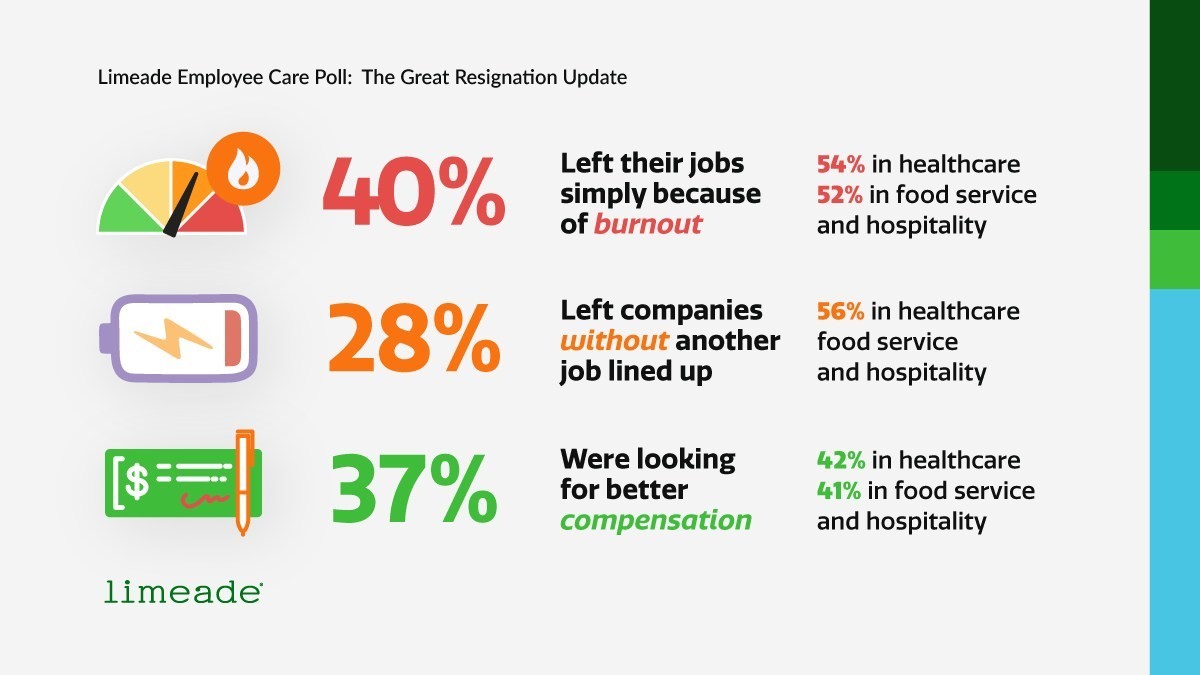
How to Make a Successful Job Transition By Overcoming Fear Of Changing Jobs: Complete Guide
- Posted On : 14th April 2023
- Written By : Admin
Changing jobs can be a daunting experience, especially if you have been in your current role for a long time. Fear of the unknown, uncertainty about the future, and concerns about job security can all contribute to anxiety and stress. But in today's rapidly evolving job market, changing jobs may be necessary to advance your career or find a better work-life balance.
According to prnewswire.com, nowadays many employees are not shying away to join the Great resignation movement for a better work-life balance and for the better growth.

The good news is that with the right mindset and tools, you can overcome your fear and take the leap towards a more fulfilling career. In this blog post, we will share some tips on how to conquer your fear of changing jobs and make a smooth transition to a new role.
From assessing your skills and interests to networking and preparing for interviews, we will show you how to navigate the job market with confidence and ease. So, if you are ready to take the next step in your career, read on for some valuable insights and advice.
Why do people fear changing jobs?
Changing jobs can be a difficult and intimidating process. For many, the fear of the unknown and uncertainty about the future can be overwhelming. It is natural to feel anxious when considering a new job, particularly if you have been in your current role for a long time. However, it is essential to remember that change can also be a positive experience. By stepping out of your comfort zone and embracing new challenges, you can grow both professionally and personally.
Many people fear changing jobs because they worry about job security. They might think that they will lose their current job and struggle to find a new one, or they might worry that they will not be able to adapt to a new work environment. Others might be concerned about the financial implications of changing jobs or the impact it could have on their family. Whatever the reason for the fear, it is important to recognize that it is normal to feel apprehensive about change.
Common fears associated with changing jobs
Here are some of the most common fears associated with changing jobs:
Fear of the unknown:
Many people are afraid of the unknown and worry about what the future will bring. They might be concerned about whether they will like their new job, whether they will be able to do the work, or whether they will fit in with their new colleagues.
Fear of failure:
Some people worry that they will not be able to perform well in their new job, or that they will not be able to meet the expectations of their new employer.
Fear of financial instability:
Changing jobs can also be a source of financial stress. People might worry about losing their current income or not being able to support their families if they do not find a new job quickly.
Fear of starting over:
If you have been in your current job for a long time, it can be difficult to imagine starting over in a new role. You might worry that you will lose the relationships you have built with your colleagues or that you will have to learn everything from scratch.
Tips for overcoming a fear of changing jobs
If you are struggling with the fear of changing jobs, here are some tips to help you overcome your anxiety and make a smooth transition.
Seek support from family and friends
It is essential to have a support system when making a big change like changing jobs. Reach out to family and friends for emotional support and guidance. Talking through your fears and concerns with someone you trust can help to alleviate anxiety and provide a fresh perspective.
Consider the potential opportunities and benefits
Instead of focusing on the potential risks and challenges, try to focus on the potential opportunities and benefits of changing jobs. Think about how a new job could help you to grow and develop professionally and personally. Consider how it might improve your financial situation or provide a better work-life balance.
Focus on the present moment and take small steps
Instead of worrying about the future, focus on the present moment and take small steps towards your goal. Break the process down into manageable steps, such as updating your resume, networking with contacts, and applying for jobs. Celebrate each small win along the way to boost your confidence and motivation.
Learn new skills and expand your network
To increase your chances of success in your job search, consider learning new skills and expanding your network. Attend industry events, join professional organizations, and take courses to improve your skills and knowledge. This can help you to stand out from other candidates and increase your chances of finding a job that is the right fit for you.
Benefits of changing jobs
While changing jobs can be a challenging experience, it can also be an opportunity to grow and develop. Here are some of the benefits of changing jobs:
Professional growth:
Changing jobs can allow you to learn new skills, work with different people, and take on new challenges. This can help you to develop your career and gain valuable experience that you might not have had in your current role.
Increased job satisfaction:
If you are unhappy in your current job, changing jobs can be a way to find greater job satisfaction. A new job might offer better working conditions, more opportunities for advancement, or a better work-life balance.
Better pay and benefits:
Changing jobs can also be a way to improve your financial situation. A new job might offer better pay, benefits, or perks that can help you to achieve your financial goals.
Personal growth:
Changing jobs can also be a way to challenge yourself and grow as a person. By stepping out of your comfort zone and embracing new experiences, you can learn more about yourself and what you are capable of achieving.
Overcome your fear of changing job
Changing jobs can be a difficult and anxiety-provoking process, but it can also be an opportunity for growth and development. By taking steps to overcome your fear and prepare for the transition, you can make a smooth and successful change to a new role. Seek support from family and friends, focus on potential opportunities, take small steps towards your goal, and learn new skills to increase your chances of success. Remember that change can be a positive experience, and with the right mindset and tools, you can achieve your career goals and find greater job satisfaction.
